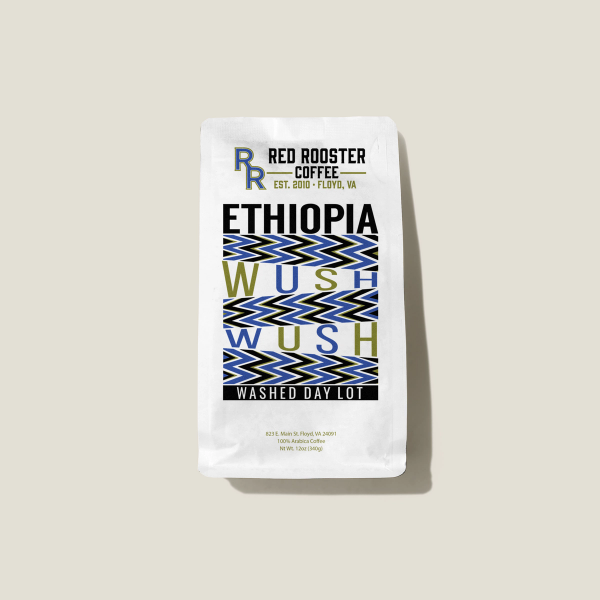Ethiopia Wush Wush Washed Day Lot
12 oz. Bag — $24
This coffee was grown by smallholder farmers in the famous Keffa cloud forests of Ethiopia and washed at the Wush Wush washing station. Extremely clean, the cup has a nice silky body, honeysuckle aroma, and stone fruit sweetness in the aftertaste.
Tasting Notes
- Fresh Apricot
- White Wine
- Lemon Black Tea
Details
Process
WashedVarietal
LandraceElevation
1850 - 1950 maslWashing Station
Wush Wush Dinkalem AdemeGreen Cost
$5.85/lbC-Market Price
$2.13/lbChemex

Form meets function in the classically beautiful Chemex brewer. Grind size is critical when brewing with this method since the brew bed can get large. Use a coarser grind to experience bright and floral fruit notes.
Sourcing & Processing
The Wush Wush washing station (owned and operated by Dinkalem Ademe) is located in the southwest highlands of Keffa, Ethiopia. Considered by many to be the birthplace of coffee, Keffa is the setting for the story of Kaldi the goat herder. According to legend, Kaldi discovers the benefits of the wild coffee plant by noticing the extra energy his goats have after eating its fruit.
The Keffa zone claims close to 5,000 wild coffee varietals. Most producers in this area (and all of Ethiopia) are smallholders, or “garden farmers". They grow coffee in the “garden” areas around their homes and also harvest cherries from coffee trees growing wild on their land.
Dinkalem Ademe and his wife Sofiya are a dynamic couple devoted to helping their community and protecting the famous Keffa cloud forests. They live in the Wush Wush village with their 6 children. Sofiya organizes charitable work such as education and food distribution. Dinkalem considers himself to be a steward of the land, dedicated to the conservation of local natural resources and features.
Approximately 2,500 farmers, surrounding the Wush Wush village and along the Agama River, bring their coffee cherries to the Wush Wush washing station to be processed. Upon arrival, cherries are carefully hand sorted to remove any that aren't of the highest quality.
This washed process is focused on water conservation. First, the cherries are run through a de-pulper to remove their skins. Next they are washed with clean water from the nearby Agama River by a demucilager. This machine dramatically reduces the amount of water that is needed to remove the sticky mucilage layer. The cherries are then soaked in clean water for 12 hours before being moved to raised beds to slowly dry. The workers carefully stir, hand-pick defects, and cover the coffee multiple times a day (depending on the weather) until it has reached optimal moisture content.
This coffee was imported by the Ethiopian-owned and woman-led company Catalyst Trade. Zelalem Girma Bayou, Emily McIntyre, and Michael McIntyre are redefining the specialty coffee trade in Ethiopia, Kenya, and Peru by focusing on rewarding the labor of each and every worker and increasing their quality of life.


